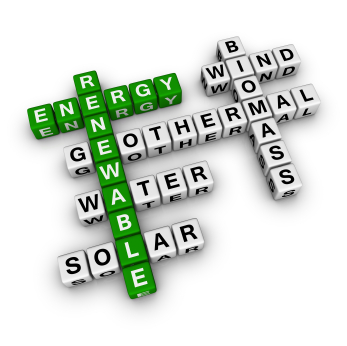All about Conserving Energy
Our main existence depends on non-renewable sources of energy – oil, coal and natural gas. The erstwhile organic remains of animals and plants (fossil fuels) form the bedrock for these energy sources.
Nature has been providing us the means to survive for thousands of years, that it is not surprising that these sources are fast depleting. Such resources are finite and will eventually end. Therefore, there is an urgent necessity to conserve and stop mindless spending of these resources.
Even today, scores of coalmines are a major source for generation of electricity. Ever increasing population and industrial growth all over the world has quadrupled the use of coalmines.
India, having the third largest number of coalmines, still grapples to supply sufficient power due to its ever-increasing demand.
Similarly, several oil wells formed with the organic remains of plants and animals of yesteryears. The extracted oil has found a way into our lives through transportation fuel and synthetic materials. The oil wells are also the source for natural gas, the application of which is wide and varied. Residential, commercial, transportation and industrial sectors consume a great proportion of natural gas.
How Can You Help
Mammoth efforts are on by the Government and corporate to reduce the consumption of energy. These efforts are meaningless unless everyone makes an earnest and persistent effort to save energy in every possible way.
Since we consume energy almost everywhere, we must cut down energy consumption at home, school and work with easy measures. Being a Spartan helps you to cut energy and money consumption.
Essential Energy Saving Tips at Home and Office
- Look for vampire energy wasters at home and office. Walk through your house in the dark, to notice various home appliances and gadgets that are either blinking or glowing. These gadgets are vampire energy wasters, which leak energy even when turned off.
- Few devices at home such as, the home entertainment system, music system, gadgets with rechargeable batteries and those that have the standby mode, waste billions of kilowatts of electricity. You can control this enormous waste of energy by simply unplugging the gadgets, when, not in use. If you are using a single power strip having multiple plug points, then, use the switch to shut down the power.
- If you are using an air conditioner, much of energy may be leaking through crevices, cracks and holes of the walls. Ensure the house is free of such flaws and avoid energy seepage.
- A ceiling fan keeps consistent air circulation and will keep you cooler than an air conditioner, which sucks up more energy. Use AC sparingly.
- Educate your family members, co-workers to switch off the appliances, equipments or gadgets when, not in use.
- Dust all the lights and bulbs for optimum utilization of energy. Dusty bulbs emit 20% less light.
- Replace all incandescent bulbs/lights with compact fluorescent lamps (CFL). They are highly efficient and economical. These come in various sizes and configurations, which fit any lighting fixture.
- You must unplug the charger once the battery is charged. Regular checking will help you save a considerable amount of energy.
- You may be spending more energy with old and inefficient home appliances. Replace them with Energy Star branded appliances, which though expensive, are smart energy savers. Similarly, solar water heaters can replace electric geyser saving you energy as well as making you independent of public electric supply.
- Do not use the dryer option of the washing machine unless it is a rainy day. Use the sun’s energy to dry the clothes, instead.
- Use daylight as much as possible at the office by switching off those fancy lights unless really required.
- Increase the efficiency of equipments such as fax, printer, and computer by unplugging them, when, not in use. There are smart power strips, which shut down the power when there is no flow of electricity to the equipments. Enable ‘sleep mode’ for equipments such as copier, printer and computer to avoid wastage of energy after few minutes of inactivity.
- Replace desktops with energy star laptops that are space and energy efficient.
- Be fuel wise. Use transport methods that save your time, money as well as energy, such as public transport, car pool, and bicycle, which are some great ways to reduce the carbon footprint.
- Replace old and deficient parts of the vehicle to lessen energy consumption.
- Avoid waste of natural cooking gas with smart planning.
- See if you can cook vegetables and lentils together to save time and gas.
- Soaking lentils the previous night, cooks them quickly.
- The size of the pot or pan must cover the gas burner. A small pot or pan wastes lot of natural gas.
- Keep a timer while cooking to help you switch off the gas on time. Watching TV and talking on the phone while cooking can overcook or even burn the food, resulting in wastage of gas.
- Keep the ingredients ready and then switch on the gas. Do not work the other way around.
- Smart planning helps you cook efficiently and avoid heating the dishes unnecessarily.
- Use appliances such as induction stoves, and microwave ovens, which uses minimal energy to cook and heat food.
Read the other features of the series:
Save Our Earth: Part 1, Slim Down Your Water Footprint
Save Our Earth: Part 2, Stop Criminal Waste of Water
Save Our Earth: Part 4, The Recycle Mantra
Save our Earth: Part 5, Green Living Ideas for Responsible Living






